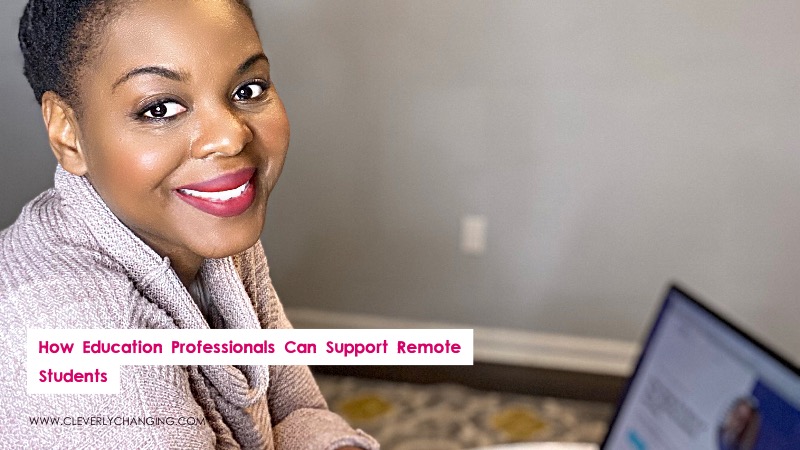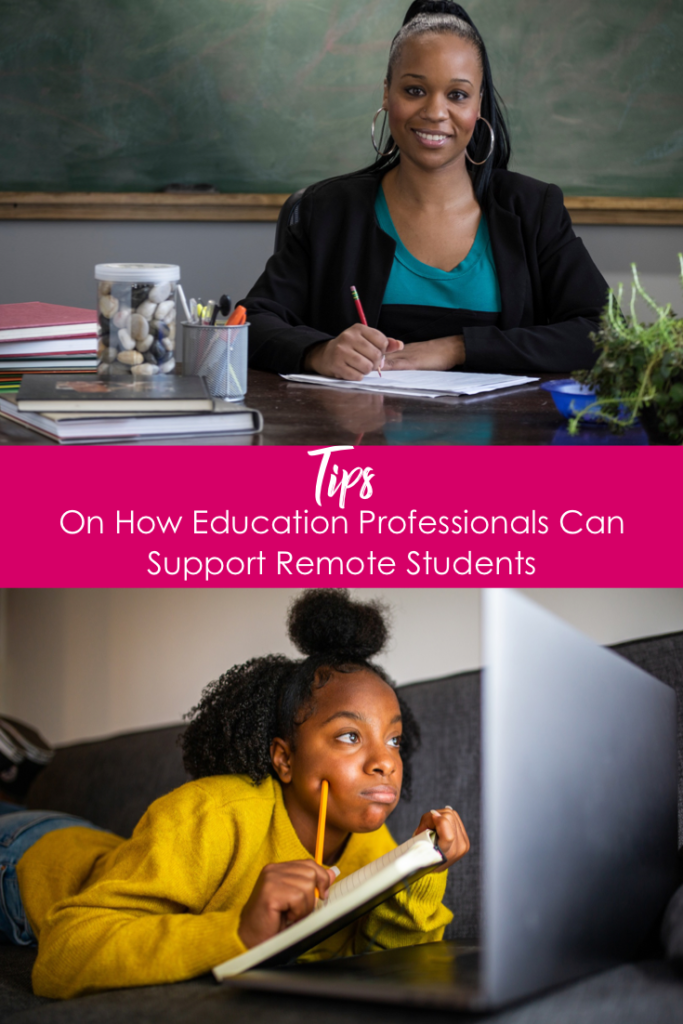The education market has had to deal with many challenges over the past two years, and these look set to continue over the coming months.
One major development that is already taking effect is the rise in remote studying. Many colleges have taken their classes online in a bid to reduce the spread of the virus.
Moving forward, it’s probable that the majority may continue to offer remote learning as it is convenient and cheaper for education providers.
While remote learning does offer a wide range of benefits for both students and education providers, it does also come with its downsides.
Among these downsides is the extra pressure it puts on staff and students alike. It can be challenging for all involved to deal with stresses such as poor internet and misunderstandings on top of everything else that’s going on in the world right now.
If you’re in the education sector, whether as a teacher or in an administrative role, you need to understand how to support your students as they navigate remote learning so that you can help them to achieve the best possible results, wherever they are.
Even as some students return to classrooms, others may be unable to do so, meaning that learning to support remote learners is a vital skill for anyone working in the education space today.
In this article, we explore a selection of the many ways that education professionals can support remote students and help them to make the most out of their learning experience.
Understand The Stresses Students Are Under
As an education expert, whether you’re a teacher, tutor or administrator, you might not fully understand the struggles that students face in today’s higher education market. Work to understand the issues that students face currently and research the problems they have to deal with, such as delays to funding, poor internet and others. Read news designed for students and stay up to date with the latest developments on their side of the market so that you can understand things from their perspective. By being proactive and understanding what your students have to handle, you can give them the tailored support they need. You can empathize with the challenges they face and offer them the support they need, which is both understanding and empathetic.
Communicate With Individual Students
Remote students might require additional support and more one-on-one assistance. When you’re dealing with remote classes and in-person teaching, it’s easy to forget to reach out to individual students. When you see your students face-to-face, they will usually find it easier to reach out if they are struggling, and you can see when someone is not achieving what they should. This can be harder when your students are remote. As such, you should make sure that you schedule individual one-to-one meetings with each student every few weeks, so that you can check that they’re OK and review any issues they might have but aren’t confident enough to bring up in front of others.
Provide Resources And Support
If your students are dealing with issues, then you should try to help them where you can, rather than passing them on to another service or simply leaving them to deal with their problems alone. Share links to websites with information, or forms, so that your students can find everything they need to deal with the problems they have to handle. Some issues, such as stress, you can’t actually deal with, but you can give your students access to the resources they need. Show them this guide to managing stress in college, so they can get themselves back on track and start enjoying their college experience again.
Offer Multiple Channels Of Communication For Remote Students
Remote learners might find it hard to communicate with their lecturers and educational support staff, as they are far away from them and can’t meet face-to-face. Some students might not be comfortable talking over the phone or via video chat, so consider offering multiple alternative ways to reach you. Encourage students to use emails, college messaging portals and even texting to reach the teacher or support provider they need. By offering a variety of communication channels to remote learners, you will improve the chances of them reaching out when they need support.
Send Regular Email Updates
When working away from campus, students might feel disconnected from their studies and might not pay as much attention to social media pages for their college or other traditional forms of online communication. Therefore, a useful way to make them feel involved and ensure that they always know what’s going on is to send out regular email newsletters updating them on what’s going on, what deadlines are approaching and more. These digital bulletins should be regular, at a set time, and not just when things get busy as deadlines creep nearer. Offering regular updates will make your remote students feel involved and supported and might also help them to stay up to date with the latest college insight and information.
Ask For Feedback
While you might think that you’re providing your students with the support they need, they might not feel the same way. As such, you should work to understand what students think about remote learning and the support you’re giving them. As well as national surveys, you should also offer your students the chance to provide anonymous feedback so that you can get feedback that’s specific to the course you manage. You can then understand what your students expect and how you can deliver better support to them in the future. It might take time to implement a strategy that works for the majority of your students, but with the right insight and feedback, you can make informed developments in the future.
Keep Adapting And Learning
The rise in remote learning has come on suddenly and out of necessity. As a result, most educational professionals and students have faced challenges and uncertainties. It’s important that you don’t worry too much about small mistakes and instead focus on thinking about the future and ensuring that these errors don’t happen again. Take on board feedback from remote learners and use this, in combination with your own experience, to create a future remote learning strategy that benefits everyone. Remote learning looks set to be a key part of the future of the education market, thanks to its convenience and cost-effectiveness. As such, you need to make sure that you make the most of this experience to learn and create strategies for remote teaching that will benefit you over the years to come.
In Summary
In today’s stressful and technology-focused educational landscape, it’s crucial that professionals in the market provide the human touch. As mentioned above, remote learning seems set to remain a key part of the educational market as we advance, so it’s crucial that you take action and embrace it as soon as possible. By offering support to remote students, you can prove your value to them and highlight the importance of your work. You’ll also earn their respect, which could help you to get the most out of them. Use these tips to help you to find unique ways to support remote students and ensure that they enjoy the education experience they need to thrive in the modern job market.


